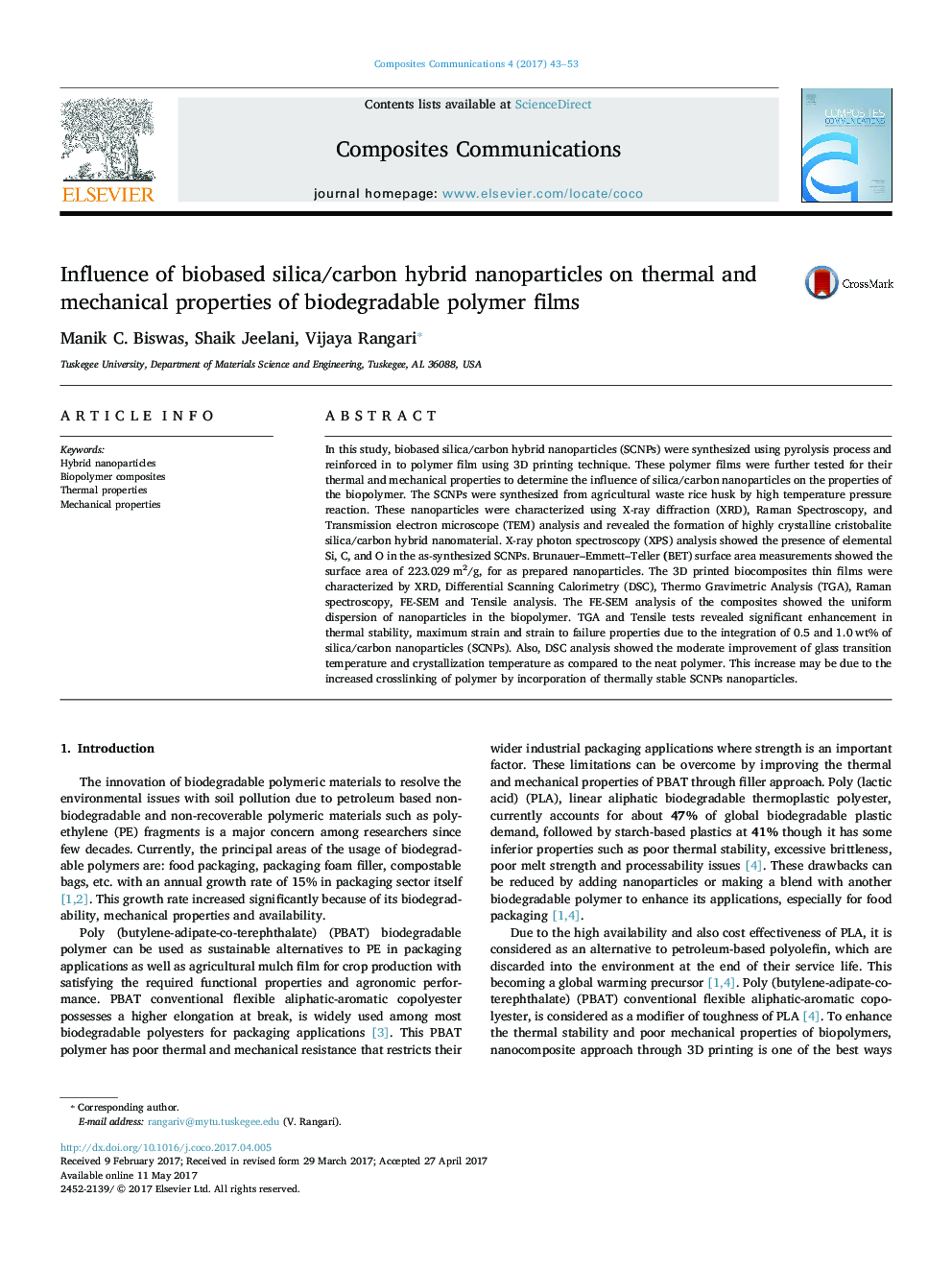| کد مقاله | کد نشریه | سال انتشار | مقاله انگلیسی | نسخه تمام متن |
|---|---|---|---|---|
| 5432800 | 1508909 | 2017 | 11 صفحه PDF | دانلود رایگان |
- Biobased silica/carbon hybrid nanoparticles (SCNPs) were synthesized using pyrolysis process from Rice husk.
- BET measurement showed the surface area of 223.029Â m2/g for as prepared nanoparticles.
- The polymer composites films were prepared using 3D printing technique.
- TGA and Tensile test revealed significant enhancement in thermal stability, maximum strain and strain to failure properties due to the integration of 0.5 and 1.0Â wt% silica-carbon nanoparticles (SCNPs).
In this study, biobased silica/carbon hybrid nanoparticles (SCNPs) were synthesized using pyrolysis process and reinforced in to polymer film using 3D printing technique. These polymer films were further tested for their thermal and mechanical properties to determine the influence of silica/carbon nanoparticles on the properties of the biopolymer. The SCNPs were synthesized from agricultural waste rice husk by high temperature pressure reaction. These nanoparticles were characterized using X-ray diffraction (XRD), Raman Spectroscopy, and Transmission electron microscope (TEM) analysis and revealed the formation of highly crystalline cristobalite silica/carbon hybrid nanomaterial. X-ray photon spectroscopy (XPS) analysis showed the presence of elemental Si, C, and O in the as-synthesized SCNPs. Brunauer-Emmett-Teller (BET) surface area measurements showed the surface area of 223.029Â m2/g, for as prepared nanoparticles. The 3D printed biocomposites thin films were characterized by XRD, Differential Scanning Calorimetry (DSC), Thermo Gravimetric Analysis (TGA), Raman spectroscopy, FE-SEM and Tensile analysis. The FE-SEM analysis of the composites showed the uniform dispersion of nanoparticles in the biopolymer. TGA and Tensile tests revealed significant enhancement in thermal stability, maximum strain and strain to failure properties due to the integration of 0.5 and 1.0Â wt% of silica/carbon nanoparticles (SCNPs). Also, DSC analysis showed the moderate improvement of glass transition temperature and crystallization temperature as compared to the neat polymer. This increase may be due to the increased crosslinking of polymer by incorporation of thermally stable SCNPs nanoparticles.
176
Journal: Composites Communications - Volume 4, June 2017, Pages 43-53
